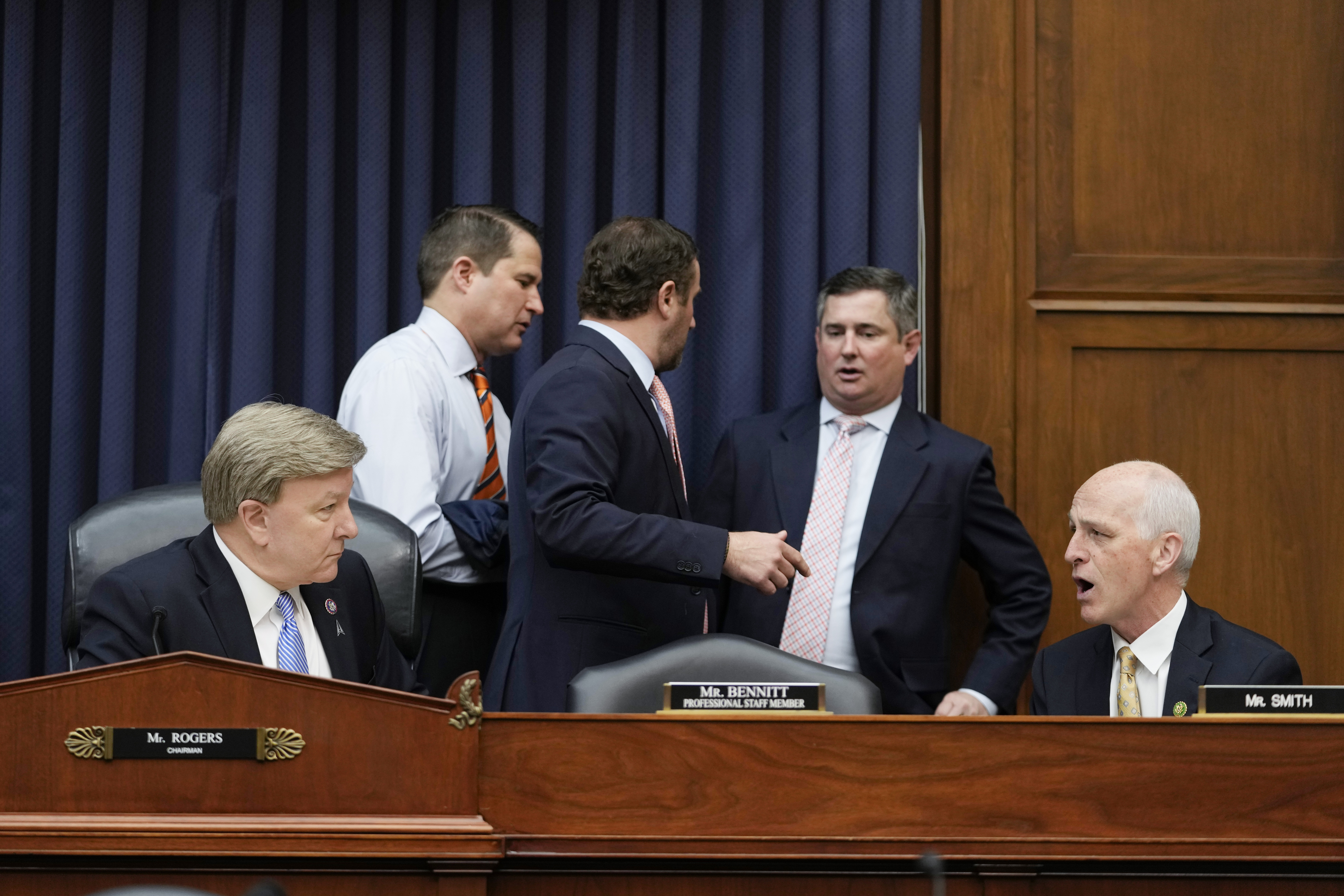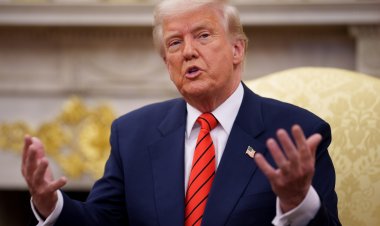Debt ceiling brawl jams up the Pentagon’s mega policy bill
Sidelining the NDAA means there won’t be a price tag for military spending to inform debt ceiling talks.


A brawl over the debt limit is throwing bipartisan defense policy legislation into uncertainty — a setback for lawmakers who say the U.S. needs to pass the bill to deter China and meet other world threats.
Plans to debate the annual National Defense Authorization Act, which prescribes military policy and the broad outlines of the Pentagon’s $800 billion-plus budget, have been delayed in both the House and Senate as the White House and GOP leaders spar over how to stave off a calamitous debt default that could come in just a few weeks.
The House Armed Services Committee indefinitely postponed markups on its version of the bill that were supposed to kick off Thursday, POLITICO first reported on Tuesday. No explanation was given then, but by Wednesday House Republican leaders acknowledged the debt limit debate was the hangup.
“I'm hopeful that as the speaker meets with the president and the other congressional leaders on Friday that they can get some real specifics that get us closer to an agreement,” House Majority Leader Steve Scalise (R-La.) told reporters Wednesday. “For now, we're going to wait and see how that process plays out before starting the NDAA."
POLITICO also first reported on Friday that the Senate Armed Services Committee is punting plans to approve its own bill by June 1, the date the Treasury Department has warned the federal government could run out of money. Senators instead are aiming to consider the bill in mid-June, when the debt issue may have been resolved, if only temporarily.
The defense policy bill is one of the few major pieces of legislation that reliably becomes law each year. Though the NDAA doesn’t allocate money, the bill in recent years has still been an important vehicle in pushing the Pentagon budget to historic highs, as Democrats and Republicans have joined forces to ladle billions of dollars onto Biden’s spending plans.
Lawmakers have used the bill to push for a larger military presence in the Pacific to deter China and boost weapons production. The catchall bill also includes measures that are important for agencies outside of the Pentagon, including nuclear weapons research programs for the Energy Department and green lighting more arms sales to Taiwan for the State Department.
Sidelining the bill — which is expected to endorse billions of dollars more than the administration sought for defense programs — means there won’t be a price tag for military spending to inform debt ceiling talks between Republicans and Biden. Both House and Senate Armed Services committees were expected to approve a level higher than Biden’s $886 billion national defense budget request.
"It makes it a little bit harder for the Armed Services committees to be part of the overall solution to the topline question," said Sen. Roger Wicker, the top Senate Armed Services Republican.
House Republicans passed debt limit legislation that would cap overall spending at fiscal 2022 levels, but many GOP members have argued defense funding must still go up. That’s given fodder to Biden and Democrats, who back a clean extension of the debt ceiling, to argue Republicans would gut domestic programs, from education to health care to veterans benefits.
Rep. Rob Wittman (R-Va.), who chairs an Armed Services subcommittee, said GOP leadership sought to “put things on pause while the debt ceiling negotiation gets done.” While he and other committee leaders were ready to advance the bill, he said waiting until a deal on overall government spending is hammered out is “a reasonable place to be.”
"The worst thing we could do is to put a number out there, mark to it, complicate the negotiations and then not be able to sustain that number,” Wittman said.
The House GOP debt bill doesn’t specifically shield defense from cuts, despite calls by hawks to boost military spending again. Democrats argue that reducing spending while taking defense off the table will mean even deeper cuts for all other programs.
Democrats were quick to criticize Speaker Kevin McCarthy over the NDAA delay on Wednesday.
“This delay in consideration doesn’t come in response to intelligence about a pressing new threat. It isn’t even the result of serious policy disagreements," Rep. Mikie Sherrill (D-N.J.) said. "Speaker McCarthy is delaying this essential legislation to give himself more time to figure out a way to force draconian cuts down the throats of the American people while playing chicken with the full faith and credit of the United States."
Ranking House Armed Services Democrat Adam Smith accused Republicans of hypocrisy for using the debt limit to force spending cuts while arguing defense needs for money.
"Speaker McCarthy delayed the markup of the defense bill because reality has come crashing in on this ridiculous, hypocritical fantasy," Smith said in a statement. "You cannot increase the defense budget while refusing to take the steps necessary to actually raise the debt ceiling, and while proposing to make massive cuts to the discretionary budget."
Pressed about Biden's stance on defense reductions, White House press secretary Karine Jean-Pierre declined to discuss specifics.
"He's willing to negotiate about the budget," Jean-Pierre told reporters Wednesday. "Certainly not going to negotiate on the specifics because if I start opening that door, then we're going to talk about other pieces as well."
Senate Armed Services Chair Jack Reed (D-R.I.) said it was a pragmatic choice to delay the debate.
“It was just the fact that given all the activities that's going to take place ahead of June 1, just physically getting together, having a meeting, being able to concentrate, would have been difficult, if not impossible,” he said in a brief hallway interview.
Reed is fighting to quickly advance his bill and break a dry spell that hasn’t seen the Senate pass its own version of the NDAA in the past two years. Senate leaders have instead relied on informal talks with the House to produce and pass compromise Pentagon legislation.
Armed Services leaders have pressed to advance their bill in short order in both chambers so the two committees can quickly iron out a compromise that can pass and win Biden’s signature.
The delay could mean lawmakers will once again be scrambling in November or December, well after the start of the new fiscal year, to craft a compromise bill.
Rep. Doug Lamborn (R-Colo.), who chairs the House Armed Services panel that oversees nuclear weapons programs, said it's "too early" to know the impact of delaying the bill. But he raised the specter of more last-minute negotiations like past years.
"I wish we were on a regular schedule with it, though, because we have so much work to do this year," Lamborn said. "And I'm afraid it's gonna mean a big pile toward the end of the year."
But the NDAA has also become law each year for more than six decades. And top senators were confident the delays won’t be a derailment given the priority placed on the bill.
“The NDAA always gets done,” Senate Republican Conference Chair John Barrasso (R-Wyo.) said.












